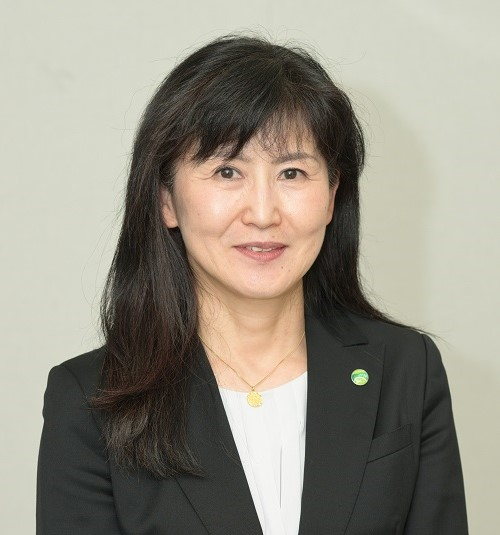
As of April 1, 2024, I have been appointed Director of Central Region Agricultural Research Center(Kanto, Tokai and Hokuriku Regions)(CARC). I would like to offer a few words upon assuming this position.
Looking at the circumstances surrounding the agriculture and food industries at home and abroad, we are facing major challenges, such as soaring prices of food, feed, and fertilizer materials due to global environmental changes and the disruption of global supply chains caused by geopolitical risks, and a shortage of farmers, an aging population, and the progressive decline of local communities in Japan. In particular, Japan, which relies heavily on imports for much of its food, faces the urgent challenge of improving food self-sufficiency and strengthening food security. NARO aims to contribute to "improvement of food self-sufficiency and food security," "enhancement of industrial competitiveness and expansion of exports of agricultural and food products," and "balance between productivity improvement and environmental conservation" by realizing Society 5.0※ in the agri-food sector. Based on these issues, CARC is engaged in research to support agriculture in the Kanto, Tokai, and Hokuriku regions.
Of the Kanto, Tokai, and Hokuriku regions covered by CARC, the Kanto and Tokai regions are located near major consumption centers such as the Tokyo metropolitan area and Chukyo area, and are expected to provide a stable supply of high-quality agricultural products, especially fresh vegetables. The "Strategy MIDORI, a strategy for a sustainable food system" formulated by the Ministry of Agriculture, Forestry and Fisheries of Japan promotes the creation of a sustainable food system with low environmental impact. Thus, it is expected to reduce the use of chemical fertilizers and pesticides and expand organic farming, especially for fresh vegetables in these regions. In Japan, also known as "Mizuho-no-Kuni," the land of abundant rice, rice paddy fields support the Japanese diet and have played a major role due to their multifaceted functions. However, as the consumption of rice in Japan has been declining, there is a need for its effective utilization. Introducing soybeans and wheat, which are dependent on imports, to this valuable agricultural production base, paddy fields, is an effective way to improve food security and producer profitability. In the Kanto and Tokai regions, the introduction of a long-term paddy field crop rotation combining rice, soybeans, and wheat is expected to increase the yield of soybeans and wheat, and to achieve a sustainable field crop complex management. In the Hokuriku region, which is famous for its rice production, the establishment of a crop rotation system that efficiently combines rice, soybeans, and wheat is expected, as in other regions. However, there are issues to be addressed, such as drainage measures that are compatible with the wet and heavy clayey fields characteristic of the Hokuriku region. In addition, as Japanese food is attracting worldwide attention, there is a need to strengthen international competitiveness by drastically reducing costs in order to further expand exports of good-tasting rice.
CARC hopes to contribute to the revitalization of regional agriculture and the development of Japanese agriculture by solving various problems faced by agriculture and agricultural management in the Kanto, Tokai, and Hokuriku regions through research and development. In the fifth medium- to long-term plan, we will engage in research and development aimed at the realization of greening of high-quality vegetable production system in the suburban areas, the establishment of data-driven field crop complex management in long-term paddy field crop rotation, and the establishment of a highly profitable crop rotation system and export expansion through drainage measures and crop planting optimization adapted to wet and heavy clayey fields.
CARC continues to play vital role in producing research results and promptly implementing them in society by working close with various agricultural management entities, government agencies, public research institutes, producers, and others. I appreciate your continuous support to CARC and our activities.
KITTA Kazumi, Ph.D.
Director
Central Region Agricultural Research Center(Kanto, Tokai and Hokuriku Regions), NARO
※Society 5.0: A human-centered society that achieves both economic development and the resolution of social issues through a system that highly integrates cyberspace and physical space.




